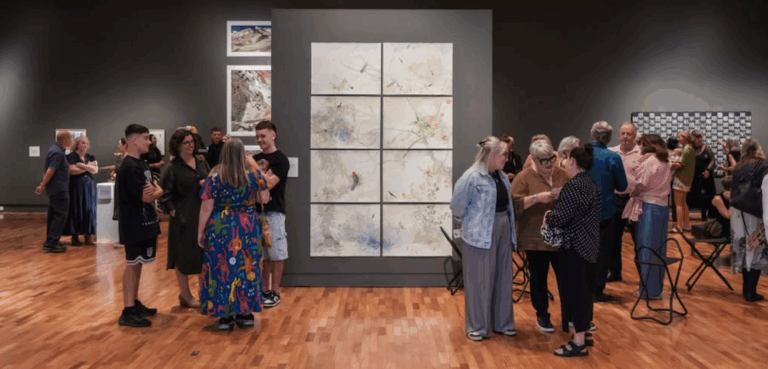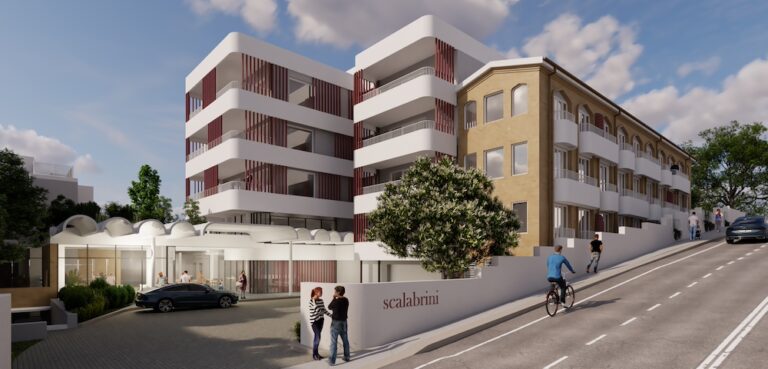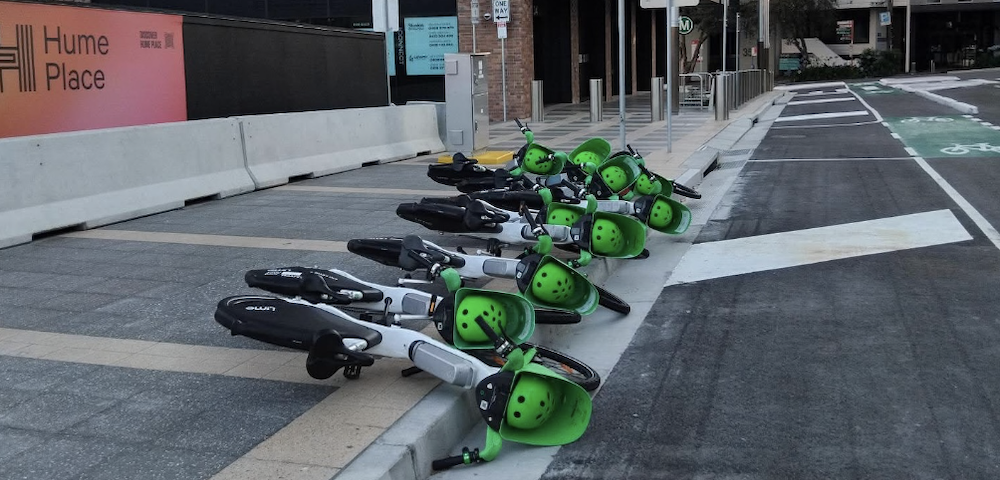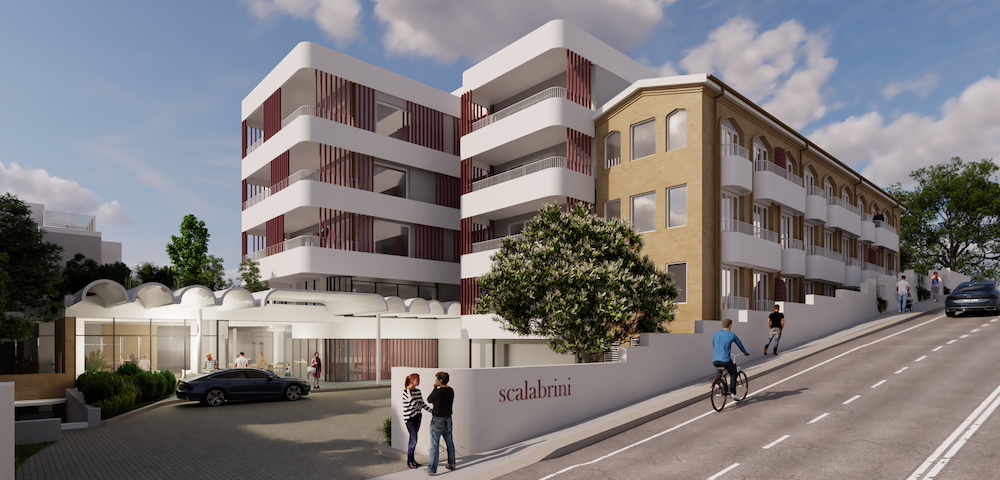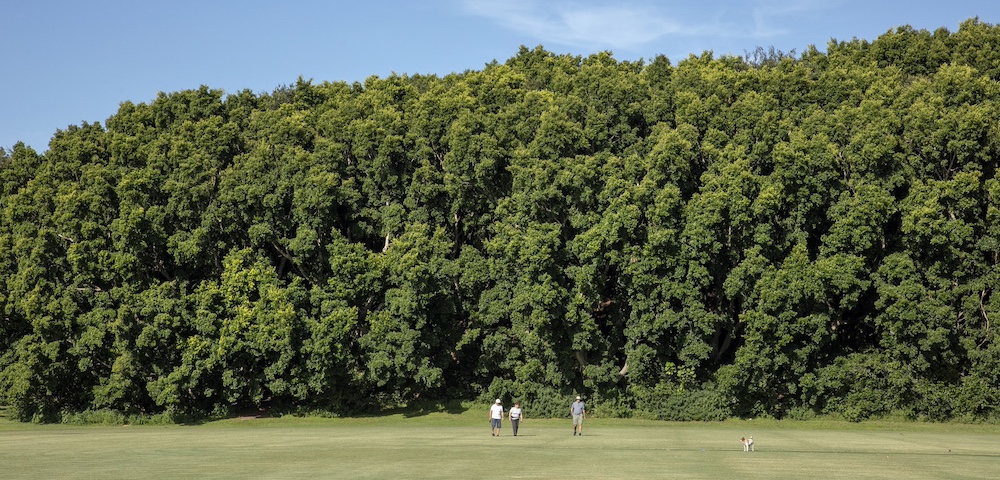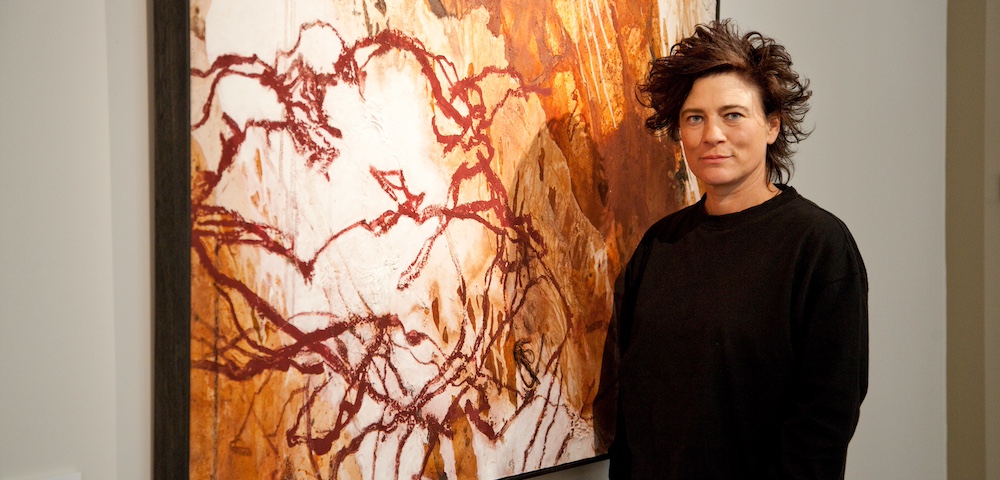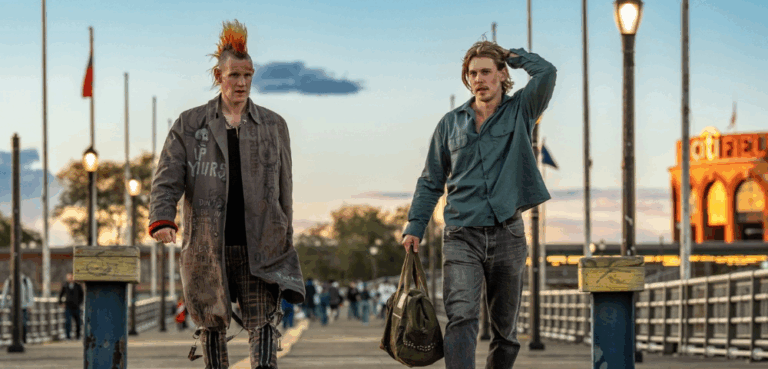
Corrective Services NSW Accused Of “Lies” Following Trial of Video-Only Visits in NSW Prisons
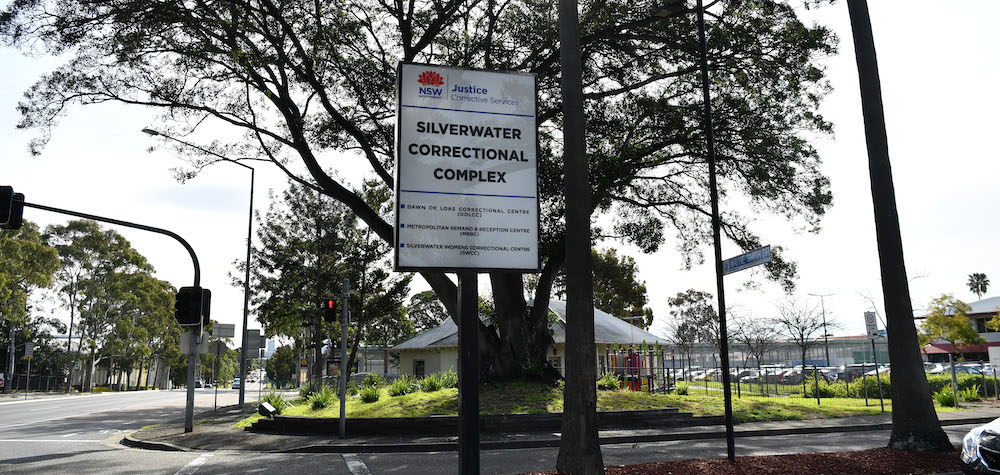
Expensive phone calls, jaded families and now a trial of video-only “visits”: Robbie Mason reports on the connection crisis within NSW prisons.
“Me and my dad would have this weird dynamic where he’d call me from jail and the phone would cut out straight away,” Lisa* says. “It was his way of saying he needed more money and he’d run out. So I’d top up his BPAY. He felt bad asking his daughter for money.”
There’s an uncomfortableness to her chuckle when she recounts the yarn. It’s a chuckle that recognises the absurdity of the situation.
Lisa notes the importance of video calls for her father and family while he was locked up. It wasn’t always feasible for her large family in Western Sydney to trek out to regional correctional centres. During the COVID-19 pandemic, when authorities introduced tablets inside NSW prisons, video calls became a happy medium.
But she doesn’t believe that video calls should replace physical visits — which is precisely what happened to people incarcerated at Macquarie Correctional Centre, where there was recently a three-month trial which abolished in-person visits on Sundays.
Now inmate advocates are concerned that restrictive COVID-19 lockdown policies inside NSW prisons are not just lingering, but returning. They emphasise to City Hub the damaging effect of worsening isolation and expensive phone calls on the well-being of people incarcerated across the state, as well as their families, partners and friends.
In the process, they’ve exposed the frailties within the PR spin of Corrective Services NSW, and within a prison system reaching crisis point.
Prisoner advocates condemn restrictions to in-person visits in NSW prisons
Corrective Services NSW (CSNSW) recently ran a three-month trial program at Macquarie Correctional Centre in regional NSW, which limited in-person visits to the prison to one day per week (Saturdays). Previously the state government agency had allowed physical visits to the site all weekend. At the time, CSNSW told media that inmates themselves had requested the switch to video-only “visits” on Sundays at Macquarie Correctional Centre.
The trial finished on Sunday 27 July. CSNSW has chosen not to make the trial permanent.
Voices in the prisoner advocacy space have condemned the decision to introduce the trial in the first place, as well as the contradictory public statements of CNSW regarding the change.
Last month, Justice Action conducted research outside Silverwater Correctional Centre with the families and friends of people locked up there. They also did a social media callout on visitation issues.

The findings of the not-for-profit social justice organisation contradict the CSNSW claim that prisoners want in-person visits replaced with video calls. Inmates at Macquarie Correctional Centre have also directly communicated with Justice Action expressing concern, says founder Brett Collins.
“We got a resounding statement at the end of the three-month trial period,” Brett states. “The families think it’s outrageous that anyone wants to stop physical visits.”
“For the Commissioner [of CSNSW] to use the term ‘video visit’ is totally misleading and wrong. It’s a video call, not unlike an audio call. It just gives you a bit more imagery but it’s not the same as touching, smelling, hugging and kissing a family member.”
“It’s simply an attempt to reduce the cost of having guards there,” Brett asserts. “We call it a lie.”
A report published in 2024 cites “unscheduled lockdowns” and staff shortages as an especially prominent issue at Macquarie Correctional Centre hindering inmate rehabilitation. A similar inspection report on Junee Correctional Centre directly links staff shortages to the dates of operating restrictions. Almost one third of partial lockdowns at Junee in 2023 occurred in December alone as a result of staff absences linked to the release of news that the privately-run prison was returning to public hands.
“There are good and caring people who work within Corrective Services but, as long as the government is pursuing budget cuts, there will be pressure on centres to limit the services they provide,” said Sue Higginson MLC, from the NSW Greens. “These services are essential to inmate wellbeing and should not be subject to sudden changes or experimentation as management grapples with their own budget.”
A spokesperson for CSNSW has told City Hub that prison management has now revised the visitation schedule at Macquarie Correctional Centre “following staff and inmate feedback whereby in-person visits and video sessions occur on both Saturday and Sunday”.
“Corrective Services NSW understands the importance of ensuring inmates maintain a connection to their family and friends and facilitate both in-person and video visits at all NSW correctional centres,” the spokesperson said.
But difficulties overcoming the high cost of phone and video calls, the time limits on these forms of communication and the administrative hurdles of ad hoc booking procedures, which vary from jail to jail, persist for both inmates and families. According to ABC News, confusion is rife among people locked up regarding tablet use. Moreover, there are limited slots for video calls.
Lisa, who works with a youth-run charity mobilising young adults who’ve had one or more parents incarcerated, says that the financial cost and mental strain of in-person visits and calls to family members on the inside is a key issue in the communities the organisation supports.
Through this charity, Lisa is trying to plug a service provision gap in the community sector. She’s serious about addressing the invisible costs of parental incarceration and building reciprocal relationships with young people scarred by their proximity to criminal justice systems, because she knows exactly what it’s like to be in their position. Her father has spent over a decade in various jails across NSW.
With her dad locked up, Lisa quickly became a “middle man” between her dad and the rest of their family. She connected him with family back home in Nigeria, pencilled in calls with her six other siblings and helped organise in-person visits where possible. She describes this process as “the parentification of the child”. Put simply: you grow up really quickly when one of your parents goes to jail.
Ella*, one of the charity’s staff members, says it was a common theme at their first retreat in 2024, which brought together young adults experiencing parental incarceration.
“You have a 10 minute time limit with calls and there is all this logistical shit that actually needs to be sorted. That eats into your time. So then your phone call becomes about logistics and not about ‘how are you?’ That’s a subtle way that it can harm the sense of connection between two people,” Ella says. “You almost have to have an agenda with the phone call. You have to be aware of finances.”
“Ideally 12-year-olds are not concerned with these mental loads,” she comments dryly.
How do prison phone calls work in NSW?
In NSW, sentenced inmates receive one free personal call per week, while those in pre-trial custody receive two free personal calls each week. Calls to lawyers, certain community services and the NSW Ombudsman are always free of charge, but any calls on top of this require payment.
In June 2023, CSNSW banned low-cost prison phone calls through third-party operators. As a result, the individual cost for a phone call – limited in most NSW jails to 10 minutes – sky-rocketed from $0.25 to $2.59.
Pay rates for jail work are a frequent complaint, and labour programs are not universally available across NSW correctional centres. With almost no exceptions, people inside NSW jails earn at the maximum $1.80 per hour and $72.42 per week, if they can earn any money at all. Accordingly, many inmates and families have struggled with the prohibitive costs of phone calls, which are now often video calls following the recent roll out of digital tablets across NSW prisons. Video calls from tablets cost the same as phone calls, with the addition of a $2 monthly device fee deducted from an inmate’s cell balance.
Authorities first introduced tablets inside NSW prisons in 2020. When CSNSW secured roughly $40 million from the Digital Restart Fund to expand tablet access across all the state’s publicly-run correctional centres, bureaucratic documents spoke glowingly of improved prisoner access to “mental health programs”, “support networks” and “education”.
But the reality of the situation quickly emerged – prisoners using tablets in visiting areas outside their cells for expensive tightly-scheduled 10-minute phone calls. Many workers and activists in the inmate advocacy realm are disappointed.
CCNSW have used tablets in a “very limited way”, Brett Collins states. “It’s outrageous.”
A spokesperson for CSNSW told City Hub that “CSNSW provide phone calls at competitive rates” and that “the provision of unlimited free phone calls for inmates is cost prohibitive for CSNSW”. The government agency remains opposed to free prison phone calls, the spokesperson explained.
Both Justice Action and Lisa and Ella’s charity question the validity of CSNSW’s financial reasoning. They point out that telecommunication costs have fallen through the floor in recent decades. In Australia, Telstra has made calls from public phones – the ones you find inside old-school payphone booths – entirely free.
Brett says that the cost of unlimited video calls for people locked up in NSW is actually miniscule. While researching this issue, Justice Action received a quote from Optus for the ongoing monthly cost of providing 600 people in one institution with unlimited video calls at a bandwidth of 1GB per second. Verified documents viewed by City Hub reveal that the price quoted was just over $1 per month per person ($850 per month). The organisation estimates that the initial setup cost and project management fee would be roughly $10,000 for a NSW correctional facility – a cost that would thereafter disappear.
Sue Higginson MLC, meanwhile, has backed the growing nationwide call for free prison phone calls.
“Prisons are operating as torture chambers where incredibly influential corporations like telecommunications companies are making a profit from basic services that could just as easily be provided at low or no cost by the government,” she says. “It’s just wrong.”
Last year, Sue Higginson tabled the largest inmate-only petition ever in NSW parliament. It demanded that all phone calls to and from correctional centres become free.
A wide range of research shows that regular in-person visits lower reoffending rates, boost emotional stability and improve employment and housing prospects for inmates. By most metrics, they’re also more effective than video calls.
Video calls help inmates but are not a valid substitute, critics argue
Speaking to her own experiences, Lisa acknowledges the value of video calls and their capacity to subdue the logistical nightmare of visiting inmates far away.
Jails often only allow in-person visits on weekends, although every correctional centre has a different policy. Moreover, physical visits may eat into petrol money, force someone to skip a shift at their workplace or result in children missing weekend sports. Lisa points to recent research that emphasises the overall benefits of video prison calls in Australia for father-child relationships in addition to in-person visits.
Strip searches upon entry and sniffer dogs may also traumatise visitors, especially older women and young children who are witness, Ella says.
“They feel criminalised by all the checks and surveillance,” Ella explains, leading to “vicarious criminalisation.”
But Lisa and Ella are wary of reliance on video visits as the sole choice for NSW prisoners — and it’s not just due to their cost.
First, there’s the sound quality issue. Lisa complains about the “shocking platform” jail tablets used during the COVID-19 lockdown era.
“It crashed all the time and it looked like it was made in 2005.”
But the real barrier is the time limit on prison phone calls.
“Maybe someone didn’t have time to sort their housing bills before they got put into custody and their bills are racking up. Phone calls are not just a luxury; they’re quite literally a necessity for people, even beyond a connection with loved ones.”
“I’ve never got onto Centrelink inside 10 minutes,” Ella quips. “Not once.”
“Time limits on phone calls seem like a hangover from the era when everyone lined up in the yard to use one of two landline phones and you had to wait your turn,” she continues.
Aboriginal people in prison heavily impacted
Brett Collins emphasises the importance of continuing cultural connection for incarcerated Indigenous people who are over-represented in the justice system. Many bear the weight of added kinship responsibilities and many worry about community elders passing away while they’re locked up (the life expectancy for Aboriginal and Torres Strait Islander people lags almost one decade behind the life expectancy for non-Indigenous people).
Like those trapped within the poverty pipeline, Aboriginal people bear the brunt of communication burdens, and the recent case of Macquarie Correctional Centre is no exception. A 2023 inspection report recorded that Macquarie Correctional Centre (formerly Wellington Correctional Centre) has “one of the largest populations of Aboriginal inmates across correctional centres in NSW”.
Is this all a sign of what is to come?
Sue Higginson MLC, who was a public interest lawyers before she became a member of parliament in mid-2022, says “with certainty” that the rate of complaints about CSNSW and the impact on families is “increasing”.
“My office receives emails and phone calls every day from people with loved ones who are incarcerated, frustrated and desperate to be in touch with the people they need,” she states. “Nearly every call I receive is because Corrective Services have denied, delayed or otherwise limited contact between someone on the inside and their loved ones on the outside.”
Collins expresses deep concern over what the trial at Macquarie Correctional Centre could mean for prisoners down the line. Investigative reporting has exposed the exceptional frequency in recent years of missed legal appointments, service reductions and rolling prison lockdowns, usually reserved for riots, as a result of staff shortages and cost-cutting measures.
Prison guards have also expressed concerns for their safety in Victoria as a result of tensions within the prison system there. Seen this way, critics perceive a jail visit trial not as a harmless gimmick but as a possible trend.
It raises an important point. If a women’s correctional centre in NSW were to adopt a more restrictive visitation schedule, the implications would be especially significant for Aboriginal communities because the majority of Aboriginal women in prison (over 80%) are mothers. What’s more, they account for roughly one third of female prisoners in NSW, despite only making up 3% of the total Australian population, and parental incarceration has ripple effects. Research shows that children of incarcerated parents are more likely to experience mental distress, poor physical health and socioeconomic disadvantage.
According to one study, approximately 66% of Indigenous people in juvenile detention in NSW have had a parent imprisoned.
Lisa tells City Hub that video calls aren’t a valid replacement for in-person visits, but she also says the “bigger picture” of mass incarceration and resistance to change within CSNSW worries her even more.
“I’m nervous about the lack of resourcing for organisations like [ours] on the ground. The people working on this carceral system want to build more prisons and facilities. We have this tough-on-crime Premier [Chris Minns] in parliament.”
As Ella remarks, “every resource that goes into policing, surveillance and locking people up more effectively is a resource that could have been spent on preventing people from getting into those situations in the first place.”
*Both names have been changed.

